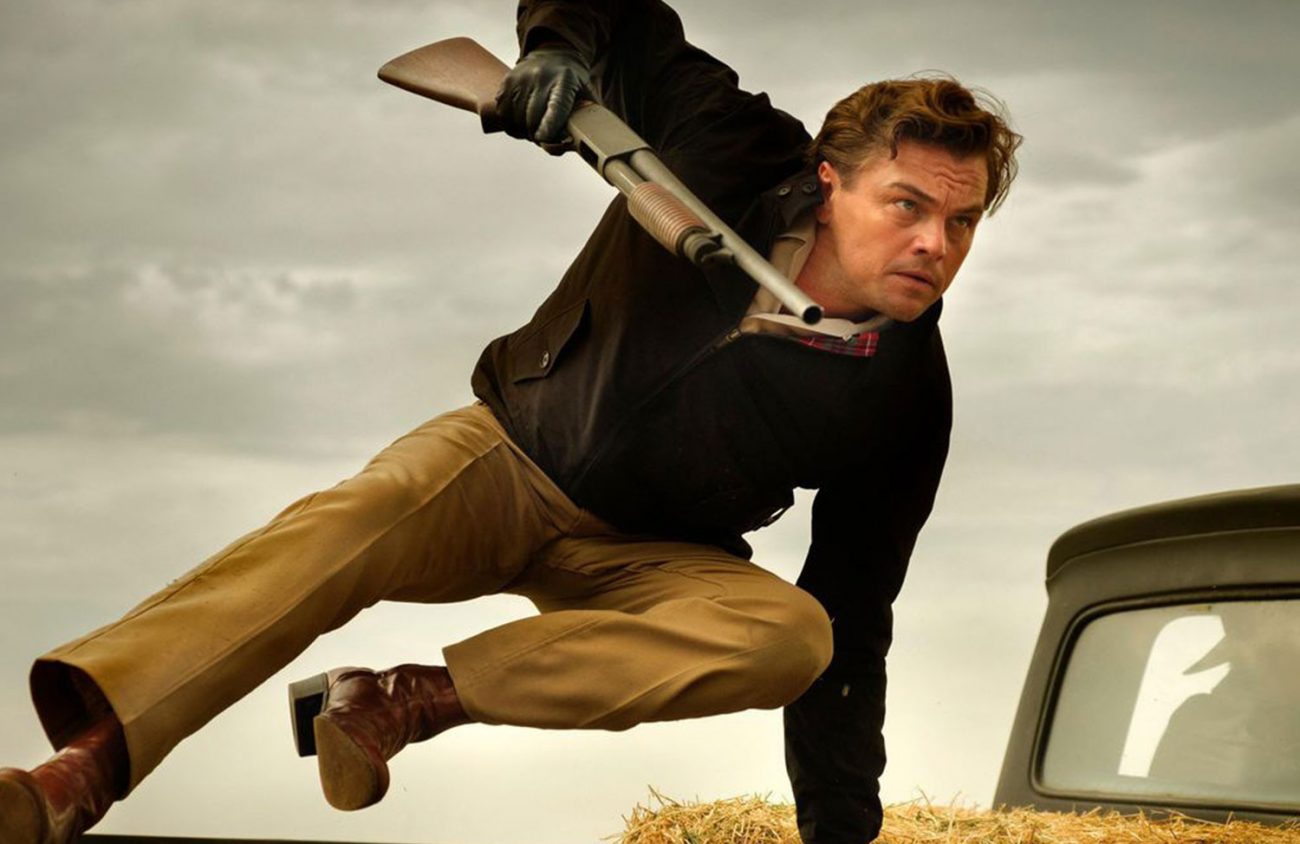Clocking in at nearly three hours, and restrained to the point of relative monkishness, the new Quentin Tarantino film is leaving many moviegoers scratching their heads. Where’s the rampant violence? (Wait for it.) Where’s the chaos and unhinged dialogue? (Look and listen harder.) Has Tarantino mellowed? Lost his edge?
Yes and no.
Once Upon a Time … in Hollywood — and that ellipsis is of critical significance — finds the director returning to 1969 Los Angeles on the eve of the Manson murders that, in deeply spiritual and psychological ways, mark the final beginning of the end of the American dream.
The ideological derangement and arbitrary brutality of the Manson clan massacre signaled a downward shift into collective nightmare after the false hope of our Summer of Love — a hard, grotesque slap to the face of the blinkered innocence that all but compelled our adolescent fumbling as a nation. For those who experienced it (and, in a sense, we are still experiencing it), it’s impossible to downplay the subterranean chill the Manson murders introduced into the collective bloodflow of this country.
Tarantino enters this era crabwise, in the form of two Hollywood types whose stars are falling fast: the alcoholic actor Rick Dalton (Leonardo DiCaprio) and his devoted stunt double, Cliff Booth (Brad Pitt). The majority of the film chronicles, with a fiercely fading glow of melancholy nostalgia, the downward trajectory of Dalton’s career as he drinks (and ages) his way out of leading man status and into diminished bad-guy roles on TV cowboy shows.
Increasingly edged out of performing stunts, Booth spends most of his time driving Dalton to, fro and around Hollywood, all the while trying to prop up his friend and employer’s disintegrating ego. DiCaprio and Pitt are a total joy to watch; both actors — weathered, wry and hangdoggish, on the cinematic cusp of crossing over from beautiful and sexy into handsome and distinguished — capture the casual insouciance and telegraphed sympathies of longtime running partners (think Redford and Newman in Butch Cassidy and the Sundance Kid). Tarantino offers them the breathing room to operate at the height of their talent.
In short, Tarantino has made a buddy movie, lavishing it with a sad-happy sense of loss, an elegy for things disappearing and gone — not just for the characters invovled, but for an entire era of Hollywood, and, by extension, America itself.
Dalton lives on Cielo Drive in Beverly Hills, right next door to the great Polish director Roman Polanski (Rafal Zawierucha), boyfriend of the pregant Sharon Tate (Margot Robbie). Hence, lurking like Masque of the Red Death at the end of this movie is the fateful night of Aug. 8, a blunt fact that cuts with excruciating anticipation through the glitzy, hazy, tragicomic ramblings of Dalton and Booth.
Increasingly, Tarantino has struck me as an excellent technical director with extremely good taste and a lot of vitality but little true originality — an exuberant artist of pastiche who makes smart, frenetic movies that celebrate movies by borrowing from movies. His work is wrought with irony but also an emotional detachment that, at times, lacks ultimate risk.
What’s usually at stake in a Tarantino film is little more than a cartoonish overabundance of signifiers and lots of insider winks, borrowed willy-nilly from better filmmakers. At times, he seems the Stone Temple Pilots of cinema: The hits are good, but the source is always better.
Don’t get me wrong; I like Tarantino. But I’ve grown unexcited about his recent films, and unexcited about Tarantino is a weird thing to be. He is an infectious enthusiast if nothing else. This new film, however, has caused me to revalue Tarantino, not just as an excellent artist but as an excellent artist with something greater to say, outside the realm of genre-robbing and cinematic triumphalism.
It should go without saying that Once Upon a Time… in Hollywood is not history, nor even revisionist history; it is myth, and a very particular kind of myth. It’s almost magical realism, or satire in reverse. With all the admirable talent at his disposal, and with uncommon sophistication and subtlety, Tarantino reenvisions that past half-century of American history and movies, doing so with a tender and humanizing comic flair that, pulsing beneath its sentimental surfaces, reveals the brokenhearted longings of a bittersweet moralist like Kurt Vonnegut or Rod Serling.
Tarantino has upped his game with this one, and in the process revealed the mature sensibility of a filmmaker capable of looking backward without simply cannibalizing his own achievements and becoming a self-parody. Once Upon a Time… in Hollywood is an evolution of his craft, an inventive new phase that recalls the reflective sorrows and joys of late-career Fellini. And, despite the subject matter — and even, in an odd way, because of it — the takeaway from this latest film is that life, indeed, is sweet… if only in the movies.
